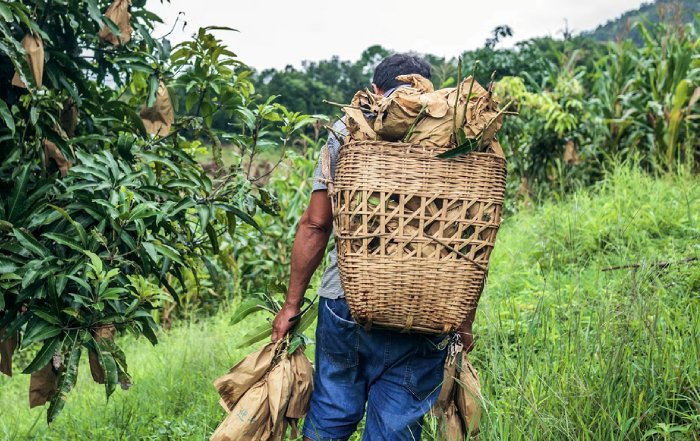How to Make Your Workplace More Sustainable in 2026
Sustainability has become a defining test of corporate seriousness in 2026, separating organizations that treat environmental responsibility as a strategic discipline from those that still view it as a branding exercise. Across North America, Europe, Asia, Africa, and South America, leading companies now recognize that the workplace is one of the most immediate and visible arenas in which sustainability commitments must be translated into operational reality. Offices, factories, logistics hubs, laboratories, retail spaces, and hybrid work environments are being redesigned to cut emissions, conserve resources, protect biodiversity, and promote human health, while also reinforcing corporate culture and brand credibility. For eco-natur.com, which has long focused on advancing sustainable living, responsible consumption, and resilient business models, the workplace is not simply a physical location but a powerful lever for cultural and economic transformation that touches employees, customers, investors, and communities in every major region of the world.
The Strategic Imperative for Sustainable Workplaces in 2026
By 2026, sustainability is fully embedded in the global regulatory and financial landscape. The United Nations Environment Programme (UNEP) continues to stress that private sector action is indispensable for achieving the UN 2030 Agenda for Sustainable Development and its goals on climate, responsible consumption, and ecosystem protection. In parallel, the consolidation of international reporting standards, particularly through the International Sustainability Standards Board (ISSB) hosted by the IFRS Foundation, has moved environmental performance from voluntary narrative to structured, decision-useful data. Executives who once viewed sustainability as a peripheral concern now find that emission trajectories, resource efficiency, and nature-related risks are scrutinized alongside cash flow, margin, and market share.
Investors, banks, and insurers in the United States, the United Kingdom, Germany, Canada, Australia, France, Japan, Singapore, and beyond increasingly use environmental, social, and governance metrics as a proxy for long-term resilience and risk management. Organizations that can demonstrate credible workplace decarbonization, robust recycling systems, and human-centred building standards are better positioned to access sustainable finance, respond to climate stress tests, and comply with evolving disclosure regimes. The integration of ISSB-aligned climate standards into securities regulation in multiple jurisdictions has raised the stakes, making environmental claims about buildings and operations subject to legal and reputational scrutiny. Professionals who wish to understand this shift in depth can explore the ISSB's role on the IFRS Foundation website.
The strategic case is equally compelling from a talent and brand perspective. Surveys in markets such as the United States, the United Kingdom, Germany, Sweden, Canada, Australia, and South Korea show that younger professionals expect employers to act decisively on climate change, pollution, and biodiversity loss. Research from institutions including Harvard Business School has found that employees who perceive their organization as environmentally responsible report higher engagement, stronger loyalty, and greater willingness to innovate. In competitive labour markets such as London, Berlin, Amsterdam, Singapore, Seoul, Tokyo, and New York, visibly sustainable workplaces have become part of the employer value proposition, influencing recruitment, retention, and reputation.
On eco-natur.com, the theme of sustainability is consistently linked to long-term economic health, and this linkage is especially clear in the workplace context. Lower energy consumption, reduced materials use, minimized waste fees, and improved health outcomes translate into measurable financial benefits, while strengthened trust among customers, regulators, and communities supports long-term market positioning across North America, Europe, Asia, Africa, and South America.
Mapping Workplace Environmental Impacts with Scientific Rigor
Creating a truly sustainable workplace in 2026 begins with a rigorous understanding of where and how environmental impacts arise. The Intergovernmental Panel on Climate Change (IPCC) has repeatedly demonstrated that emissions from buildings, energy systems, transport, and material use constitute a large share of global greenhouse gas emissions, and many of these sources are either directly controlled or strongly influenced by employers.
Energy consumption remains the most visible starting point. Lighting, heating, cooling, ventilation, data centres, and office equipment can together account for a substantial portion of an organization's operational footprint, particularly in climates with extreme temperatures such as parts of the United States, Canada, Australia, China, the Middle East, and Northern Europe. Organizations seeking to quantify their impact increasingly rely on the Greenhouse Gas Protocol, which offers globally recognized methodologies to measure and manage emissions. Once a baseline is established, companies can use the Science Based Targets initiative (SBTi) to align their decarbonization pathways with the Paris Agreement, ensuring that workplace energy strategies are grounded in climate science rather than marketing ambition.
Material use and waste generation represent another critical dimension. Paper, packaging, electronics, furnishings, cleaning chemicals, and promotional items all have lifecycle impacts, from raw material extraction to manufacturing, distribution, use, and end-of-life treatment. eco-natur.com has consistently highlighted the importance of recycling and circular design principles in reducing these impacts, and workplaces are particularly well suited for implementing such approaches at scale. The rise of hybrid and remote work since the COVID-19 pandemic has added complexity, shifting some environmental burdens from centralized offices to homes, co-working spaces, and distributed hubs in cities from Madrid and Milan to Bangkok and São Paulo, which means that employers need to consider policies and guidance that extend beyond traditional office walls.
Water use, indoor air quality, and biodiversity impacts are sometimes less visible but increasingly recognized as material issues. The World Green Building Council and networks such as C40 Cities provide guidance on how buildings can support climate resilience, healthy microclimates, and ecosystem services in urban and peri-urban areas. Certification systems like LEED in North America and many global markets, BREEAM in the United Kingdom and Europe, and DGNB in Germany and neighbouring countries offer structured frameworks for high-performance buildings that integrate energy, water, materials, and health considerations. In 2026, these frameworks are increasingly complemented by nature-focused guidance as companies consider not only their carbon footprint but also their broader ecological footprint.
Integrating Workplace Sustainability into Corporate Strategy
For workplace sustainability to be credible and durable, it must be integrated into corporate strategy rather than treated as a discrete facilities project. Boards and executive teams in leading organizations increasingly embed environmental objectives into business models, risk frameworks, and performance management systems, drawing on guidance originally developed by the Task Force on Climate-related Financial Disclosures (TCFD) and now reflected in regulatory requirements across the United Kingdom, the European Union, several Asia-Pacific markets, and parts of North America.
The starting point is a clear sustainability vision that explicitly includes the workplace as a strategic asset rather than a cost centre. This vision should be informed by materiality assessments, stakeholder engagement, and scenario analysis, ensuring that the organization focuses on the environmental issues most relevant to its sector and geographies. A technology company in California or Shenzhen may prioritize renewable electricity, efficient data infrastructure, and low-carbon commuting; a manufacturing firm in Germany or South Korea may focus on energy-efficient production lines, industrial heat recovery, and waste minimization; a financial institution headquartered in London, Zurich, or Singapore may emphasize green buildings, responsible procurement, and sustainable business travel policies.
On eco-natur.com, the concept of sustainable business is framed as the alignment of environmental responsibility with long-term economic performance, and this framing is essential when embedding workplace initiatives into broader corporate plans. Targets for emissions, waste, water, and nature-positive design should be accompanied by clear business rationales, such as operating cost reductions, risk mitigation, enhanced asset value, regulatory compliance, and brand differentiation. This strategic clarity helps secure board and executive sponsorship, which is indispensable for mobilizing capital expenditure, empowering cross-functional teams, and overcoming short-termism.
Credible reporting and assurance are now central to trust. Many organizations align their workplace-related disclosures with the Global Reporting Initiative (GRI) Standards or report through CDP, which provides a platform for disclosing climate and environmental data to investors and customers. External assurance by reputable audit firms and sustainability consultancies helps verify that reported performance reflects actual outcomes rather than aspirational commitments. This emphasis on verifiable data and transparent methodologies is consistent with the editorial approach of eco-natur.com, which prioritizes experience, expertise, authoritativeness, and trustworthiness in all guidance it provides to global readers.
Energy, Buildings, and the Renewable Transition
Energy and buildings remain at the heart of workplace sustainability, particularly in countries where commercial real estate accounts for a large share of national energy demand, such as the United States, Canada, Germany, the United Kingdom, France, the Netherlands, China, Japan, South Korea, and Australia. In 2026, rising energy prices, climate regulations, and stakeholder expectations have accelerated investment in efficiency and low-carbon technologies.
Organizations can draw on analysis from the International Energy Agency (IEA), which provides extensive resources on energy efficiency in buildings and industry, to identify measures appropriate to local climates and regulatory contexts. These measures might include advanced building management systems, high-performance insulation, heat pumps, demand-controlled ventilation, LED lighting, and smart controls that respond dynamically to occupancy and weather. In the European Union, policy tools associated with the revised Energy Performance of Buildings Directive are pushing building owners and tenants to meet progressively higher standards, while in North America, resources from the U.S. Department of Energy and Natural Resources Canada support benchmarking and retrofits. Across Asia, national programmes in countries such as Singapore, Japan, South Korea, and China promote green building codes and incentives for efficient technologies.
Beyond efficiency, the transition to renewable energy has moved from pilot projects to mainstream corporate practice. Power purchase agreements, on-site solar photovoltaic systems, participation in community energy schemes, and green tariffs are now common tools for decarbonizing workplace electricity. The International Renewable Energy Agency (IRENA) offers detailed guidance to accelerate the global energy transition, helping companies understand the technical, financial, and policy dimensions of renewable procurement. For readers seeking practical insights tailored to business decision-making, eco-natur.com maintains dedicated resources on renewable energy, exploring how solar, wind, and emerging technologies can be integrated into corporate energy strategies in regions from North America and Europe to Asia-Pacific and Africa.
Green building certifications have become powerful signals of environmental and health performance. Standards such as LEED, BREEAM, and DGNB are now complemented by the WELL Building Standard, which focuses on the intersection of environmental quality and human wellbeing. Achieving these certifications often requires close collaboration among real estate, facilities, sustainability, finance, and human resources teams, reinforcing the idea that workplace transformation is a cross-functional endeavour rather than a narrow technical exercise.
From Plastic-Free Offices to Circular Workplaces
Plastic pollution has remained a high-profile environmental concern into 2026, with the OECD and UNEP warning that global plastic waste generation is still on an upward trajectory despite regulatory efforts and voluntary commitments. Workplaces across sectors contribute significantly through single-use packaging, catering supplies, office consumables, and branded materials. Moving towards plastic-free or low-plastic workplaces is therefore an important aspect of corporate environmental responsibility and reputational integrity.
On eco-natur.com, the concept of a plastic-free lifestyle is examined not as an all-or-nothing ideal but as a practical progression towards minimizing unnecessary plastic and favouring durable, recyclable, or compostable alternatives. At the organizational level, this translates into procurement policies that prioritize reusable dishware and cutlery, refillable cleaning products, bulk purchasing with reduced packaging, and collaboration with suppliers to eliminate unnecessary plastic from shipments. In cities such as Amsterdam, Copenhagen, Vancouver, Sydney, and Wellington, organizations have adopted measures such as banning single-use plastic bottles, providing filtered water stations, and partnering with local cafés and caterers that support reusable container schemes.
Beyond plastics, the circular economy has moved from conceptual discussion to concrete implementation in many regions. The Ellen MacArthur Foundation continues to articulate business models based on designing out waste, keeping materials in use, and regenerating natural systems, and organizations can learn more about circular economy principles to inform workplace strategies. Leasing furniture with take-back guarantees, refurbishing IT equipment, sourcing products with high recycled content, and designing interiors for disassembly and reuse are examples of circular practices that are now being adopted in offices from London and Frankfurt to Singapore and São Paulo.
Effective waste management remains a practical cornerstone of circular workplaces. Segregated collection systems, clear signage, employee education, and partnerships with certified recyclers are necessary to ensure that materials are actually recovered rather than landfilled or incinerated. On eco-natur.com, the section on zero waste provides a conceptual and operational framework for minimizing waste generation, which can be adapted to diverse workplace contexts, including corporate headquarters, shared service centres, warehouses, and production facilities across different continents.
Sustainable Procurement, Food Choices, and Everyday Operations
Workplace sustainability is deeply shaped by procurement decisions, which determine the environmental and social profile of everything from paper and electronics to cleaning chemicals and catering services. In 2026, leading organizations in Europe, North America, Asia, and increasingly in Africa and South America, are embedding sustainability criteria into purchasing policies, supplier codes of conduct, and contract evaluation processes. Guidance from the OECD on responsible business conduct and the ISO 20400 standard on sustainable procurement provides structured approaches to integrating lifecycle thinking, human rights, and environmental performance into supply chain decisions.
Food is one of the most tangible and emotionally resonant aspects of workplace life, with direct implications for climate, biodiversity, and human health. Companies that operate cafeterias, provide meal subsidies, or host frequent catered events exert significant influence over dietary patterns and food waste. By prioritizing organic, seasonal, and locally sourced ingredients, and by offering menus that emphasize plant-based options, employers can support more sustainable food systems while enhancing employee wellbeing. On eco-natur.com, the section on organic food explores how organic agriculture can reduce pesticide use, protect soils, foster biodiversity, and support rural economies, aligning closely with many corporate sustainability commitments.
Organizations such as the Food and Agriculture Organization of the United Nations (FAO) and the EAT Foundation provide robust evidence on the environmental and health impacts of different dietary patterns, enabling companies to design food policies grounded in science. Practical measures include offering attractive plant-forward dishes, labelling low-carbon options, minimizing food waste through better forecasting and portion control, and donating surplus food where regulations and logistics allow. These initiatives are increasingly common in workplaces in the United States, the United Kingdom, Germany, France, the Nordics, Singapore, and Australia, and are gaining traction in rapidly urbanizing markets such as China, Brazil, and South Africa.
Everyday operational choices extend well beyond food. Cleaning products with lower toxicity, office supplies made from recycled or responsibly sourced materials, and textiles certified under schemes such as OEKO-TEX or the Global Organic Textile Standard (GOTS) can reduce harmful exposures and environmental impacts. For organizations seeking to align their interior environments with sustainable design principles, eco-natur.com offers insights in its section on design, highlighting how material selection, spatial planning, and aesthetics can reinforce environmental and health objectives.
Supporting Wildlife and Biodiversity Through Workplace Design
Biodiversity has moved rapidly up the corporate agenda in the mid-2020s, driven by growing awareness of ecosystem fragility and the economic risks associated with nature loss. The Intergovernmental Science-Policy Platform on Biodiversity and Ecosystem Services (IPBES) has warned that up to one million species are at risk of extinction, with land-use change, pollution, overexploitation, invasive species, and climate change as key drivers. Even in dense urban environments such as London, New York, Hong Kong, Shanghai, and Johannesburg, workplaces can play a constructive role in supporting biodiversity and urban wildlife through thoughtful design and management.
On eco-natur.com, the dedicated focus on wildlife and biodiversity underscores that healthy ecosystems underpin economic stability, food security, and human health. Workplaces can contribute to these goals by incorporating green roofs, native planting schemes, pollinator-friendly gardens, tree canopies, and bird-safe glazing into their sites. Collaborations with local conservation organizations, botanical gardens, universities, or municipal authorities can ensure that interventions are ecologically appropriate and aligned with regional conservation priorities.
The emerging framework developed by the Taskforce on Nature-related Financial Disclosures (TNFD) is encouraging companies to identify, assess, manage, and report on nature-related risks and opportunities, including those linked to land holdings, supply chains, and physical assets such as office parks and industrial sites. By aligning workplace landscaping, stormwater management, and site development with biodiversity objectives, organizations in countries such as South Africa, Brazil, Malaysia, Thailand, and New Zealand can contribute to habitat restoration and connectivity, while those in Europe and North America can support pollinator networks, urban cooling, and improved water quality. Even modest interventions, such as reducing pesticide use, leaving portions of corporate grounds wild, or installing nesting boxes and insect hotels, can yield meaningful benefits for local species.
Employee Engagement, Culture, and Behavioural Change
A sustainable workplace ultimately depends on people, not only on technologies or policies. Behavioural science research, including work from Stanford University and the London School of Economics, shows that social norms, feedback, and perceived agency are decisive in shaping everyday actions, from switching off lights and equipment to choosing low-carbon commuting options and participating in recycling programmes. Organizations that treat employees as active partners in sustainability, rather than passive recipients of rules, tend to achieve more durable and far-reaching change.
Green teams, sustainability ambassadors, and cross-functional working groups can help surface ideas from across the organization, pilot initiatives, and adapt global strategies to local contexts in countries as diverse as the United States, Germany, India, Japan, and South Africa. Training sessions, internal campaigns, and transparent communication about environmental performance allow employees to see the connection between their daily choices and the company's broader commitments. On eco-natur.com, the theme of lifestyle emphasizes that sustainable habits at work and at home reinforce each other, and many organizations now share resources on sustainable living, home energy efficiency, and responsible consumption with their staff, recognizing that hybrid work blurs the boundaries between professional and personal spheres.
Digital tools can make sustainability concrete and engaging. Dashboards that display real-time energy use, waste diversion rates, or modal splits in commuting provide immediate feedback and foster a sense of collective achievement. Recognition programmes for teams that propose effective sustainability innovations, or incentives for employees who choose public transport, cycling, or walking over car commuting, further reinforce desired behaviours. Successful initiatives are culturally sensitive and inclusive, ensuring that employees in different regions, income brackets, and job roles can participate meaningfully and are not penalized for circumstances beyond their control, such as limited public transport or housing constraints.
Health, Wellbeing, and Human-Centred Sustainability
Environmental sustainability and human health are deeply intertwined, and organizations that design workplaces with both in mind tend to achieve stronger performance and lower long-term costs. The World Health Organization (WHO) has highlighted the health impacts of air pollution, chemical exposure, noise, and inadequate indoor environmental quality, all of which can be mitigated through thoughtful building design, ventilation strategies, material choices, and operational practices.
On eco-natur.com, the section on health explores how environmental factors influence physical and mental wellbeing, and this perspective is increasingly reflected in workplace standards such as the WELL Building Standard, which integrates air, water, nourishment, light, movement, thermal comfort, sound, materials, and mind into a comprehensive framework. Employers that invest in low-emission materials, effective ventilation, natural light, acoustic comfort, ergonomic furniture, and access to nature often see reduced absenteeism, improved cognitive performance, and higher employee satisfaction, outcomes that are particularly valuable in knowledge-intensive industries and competitive labour markets from Zurich and Oslo to Toronto, Melbourne, and Singapore.
The experience of the COVID-19 pandemic has left a lasting imprint on expectations around health, safety, and flexibility. Hybrid working models are now common in many countries, raising questions about space utilization, carbon footprints, and the social fabric of organizations. Companies that rationalize their real estate portfolios, redesign offices for collaboration rather than fixed desks, and support healthy home working environments can reduce their physical footprint while maintaining or enhancing productivity and connection. This shift requires integrated thinking that links environmental performance, human-centred design, and organizational culture.
Economic Value, Global Context, and the Role of eco-natur.com
In 2026, the economic rationale for sustainable workplaces is more robust and better documented than ever. Energy and resource efficiency lower operating expenses; high-performance buildings can command higher rents and asset valuations; strong environmental credentials can open doors to new markets, partnerships, and financing opportunities. On eco-natur.com, the dedicated focus on the economy emphasizes that environmental responsibility is not a constraint on growth but a foundation for long-term competitiveness and resilience.
Global policy frameworks reinforce this trajectory. The European Green Deal, national climate laws in countries such as the United Kingdom, Germany, France, Japan, and South Korea, and regional initiatives across North America, Asia, Africa, and Latin America are creating an operating environment in which sustainable workplaces are no longer optional. Organizations must navigate diverse regulatory landscapes, energy markets, and cultural expectations while maintaining coherent global standards and credible narratives. Institutions such as the International Labour Organization (ILO) and the OECD provide guidance on how environmental initiatives intersect with labour rights, social dialogue, and just transition principles, reminding leaders that sustainability must encompass both planetary and human dimensions.
For decision-makers, practitioners, and employees seeking to deepen their understanding, eco-natur.com serves as a specialized hub that connects themes such as sustainability, sustainable business, plastic-free practices, recycling, wildlife protection, organic food, and renewable energy into a coherent narrative. By curating insights, case studies, and practical guidance for audiences in the United States, the United Kingdom, Germany, Canada, Australia, France, Italy, Spain, the Netherlands, Switzerland, China, Sweden, Norway, Singapore, Denmark, South Korea, Japan, Thailand, Finland, South Africa, Brazil, Malaysia, New Zealand, and other regions, the platform supports organizations that wish to align their workplaces with the realities of a low-carbon, resource-constrained, and biodiversity-aware global economy.
In 2026, making the workplace more sustainable is not a peripheral initiative or a short-lived campaign; it is a central expression of corporate purpose and a tangible indicator of whether an organization is prepared for the economic, regulatory, and ecological conditions of the coming decades. Companies that act decisively, transparently, and thoughtfully-drawing on credible science, global best practice, and the lived experience of their employees-will not only reduce their environmental footprint but also strengthen their competitiveness, resilience, and reputation across global markets. For eco-natur.com, documenting and supporting this transition remains a core mission, rooted in the conviction that workplaces can be catalysts for broader societal shifts towards sustainable living, thriving ecosystems, and a more balanced global economy.








